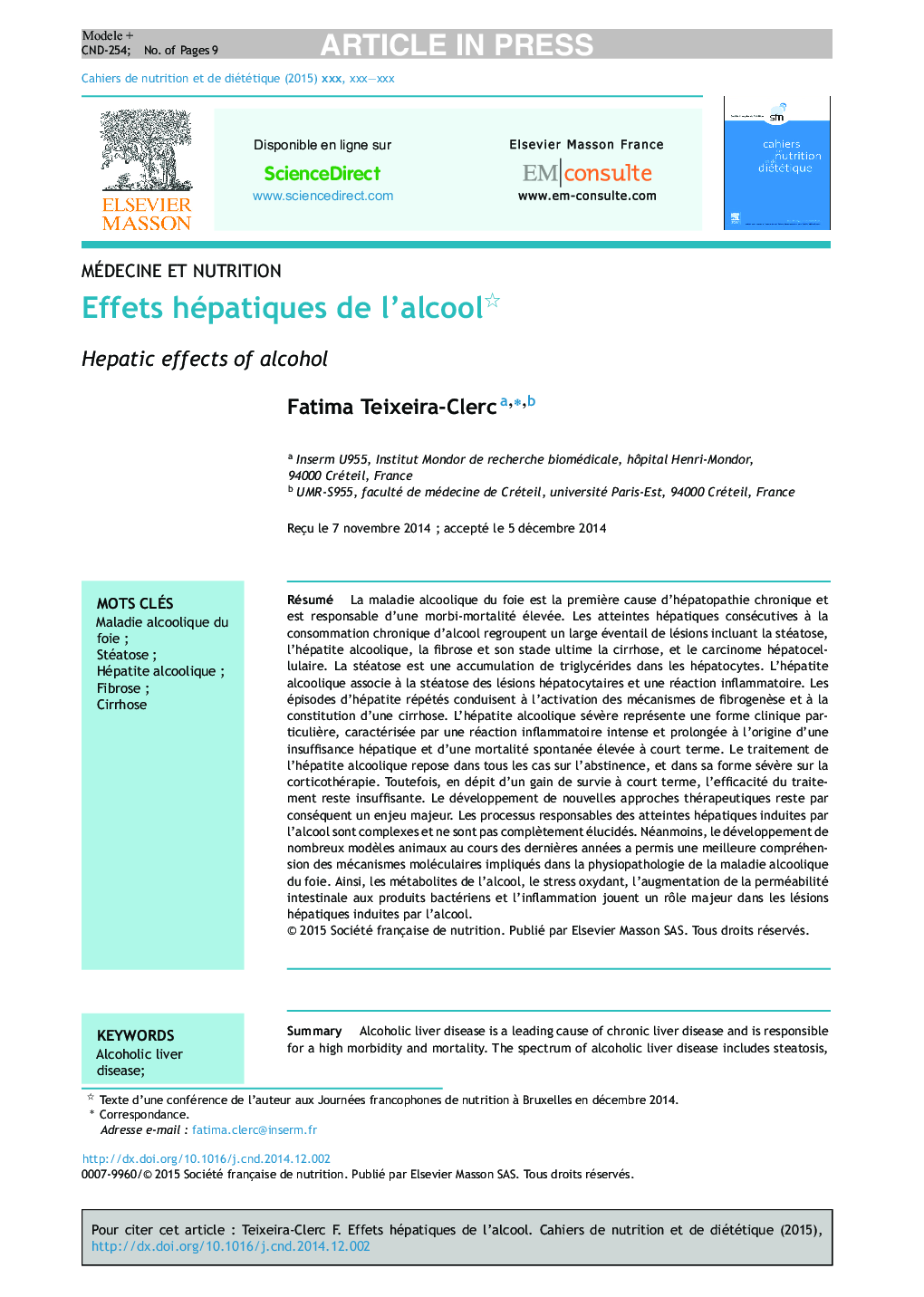| کد مقاله | کد نشریه | سال انتشار | مقاله انگلیسی | نسخه تمام متن |
|---|---|---|---|---|
| 2681240 | 1142417 | 2015 | 9 صفحه PDF | دانلود رایگان |
عنوان انگلیسی مقاله ISI
Effets hépatiques de l'alcool
دانلود مقاله + سفارش ترجمه
دانلود مقاله ISI انگلیسی
رایگان برای ایرانیان
کلمات کلیدی
موضوعات مرتبط
علوم پزشکی و سلامت
پزشکی و دندانپزشکی
غدد درون ریز، دیابت و متابولیسم
پیش نمایش صفحه اول مقاله

چکیده انگلیسی
Alcoholic liver disease is a leading cause of chronic liver disease and is responsible for a high morbidity and mortality. The spectrum of alcoholic liver disease includes steatosis, alcoholic hepatitis, fibrosis and its end-stage cirrhosis, and hepatocellular carcinoma. Steatosis is defined by the accumulation of triglycerides in hepatocytes. Alcoholic hepatitis is characterized by the coexistence of steatosis, hepatocellular damage and inflammation. Repeated episodes of alcoholic hepatitis lead to activation of fibrogenesis mechanisms and to cirrhosis. Acute alcoholic hepatitis is a severe form of alcohol-related liver disease, characterized by an intense and prolonged inflammatory reaction associated with liver failure and a significant short-term mortality. The treatment of alcoholic hepatitis includes abstinence from alcohol, and corticosteroids in its severe form. However, despite an improvement of the short-term survival, the efficacy of the treatment remains inadequate. The development of new therapeutic approaches is therefore a major challenge. The processes underlying alcohol-induced liver injury are complex and not completely understood. However, in recent years, the mechanisms driving disease progression have been better defined owing to the use of numerous animal models. Thus, products of alcohol metabolism, oxidative stress, increased intestinal permeability to bacterial products and inflammation play a major role in the pathogenesis of alcoholic liver disease.
ناشر
Database: Elsevier - ScienceDirect (ساینس دایرکت)
Journal: Cahiers de Nutrition et de Diététique - Volume 50, Issue 2, April 2015, Pages 94-102
Journal: Cahiers de Nutrition et de Diététique - Volume 50, Issue 2, April 2015, Pages 94-102
نویسندگان
Fatima Teixeira-Clerc,